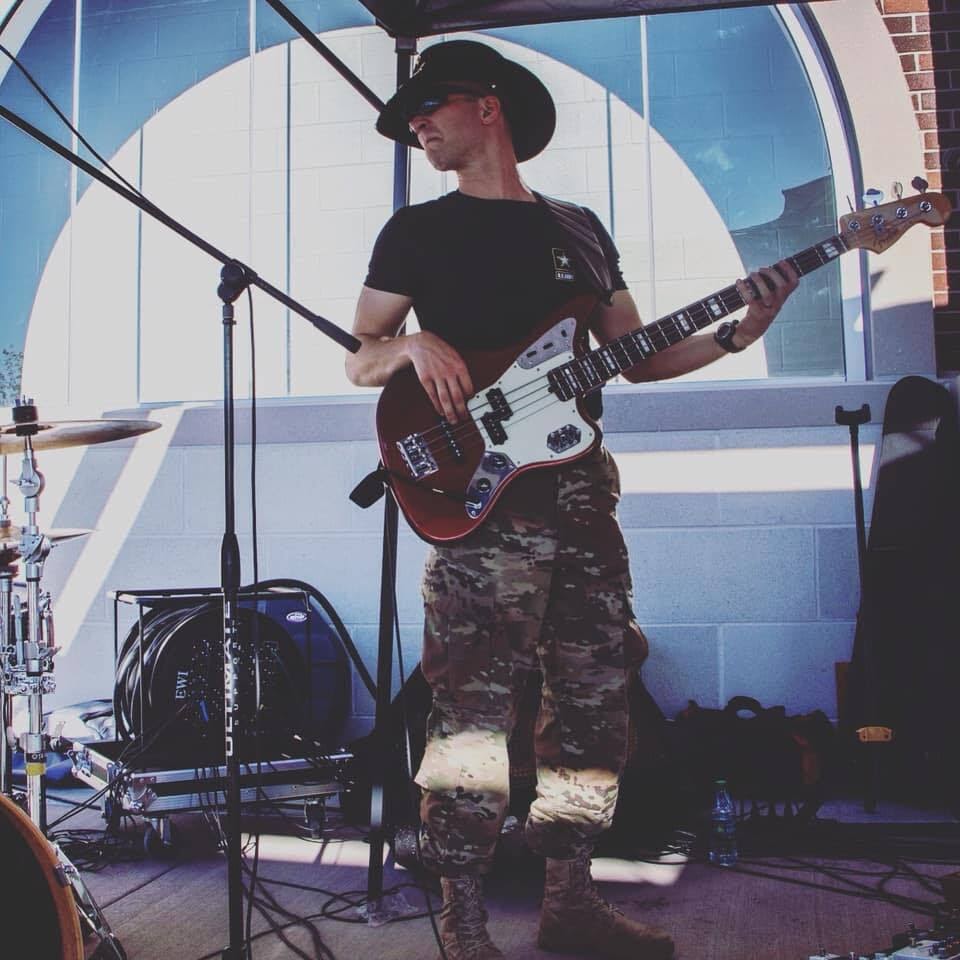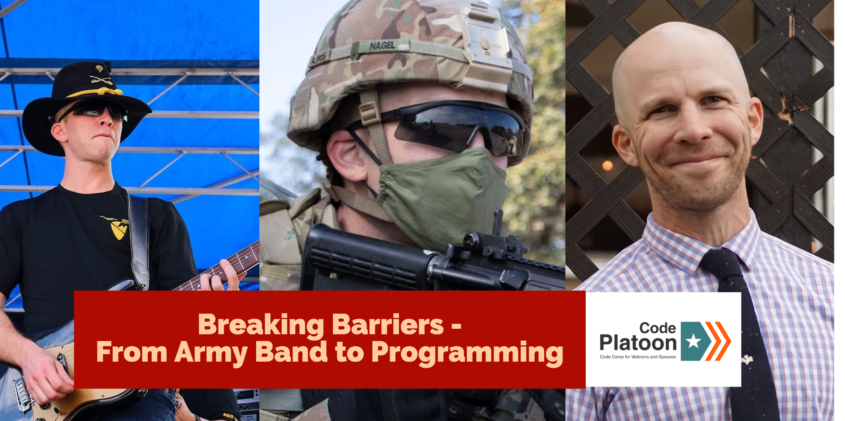Breaking Barriers: From Army Band to Programming
Some career transitions make more of a logical evolution than others. Going from a dietician to a registered nurse has its obvious connections, or moving from working on oil rigs to installing solar panels. It’s pretty apparent to most employers that military members hold a slew of transferable skills that can make them stand out in nearly any field of work.
But what do making music and programming have in common? According to Kyle Nagel, an Army Band member who is training with Code Platoon’s November Platoon, both disciplines require grit and perseverance.
“I think that one of the big crossovers between making music and creating code is that both of them start hard, and they kind of stay hard for a long time,” Kyle said. “They don’t become easy quickly. And so it’s really easy to give up on them or to doubt yourself on succeeding.”

“In the beginning, I knew it was going to be hard, but I committed to the program, trusting in the process that it will become easy at some point. There is a benefit to having done other things that have that difficult component to them, acknowledging that I’m going to suck at this for a long time. But eventually, I won’t suck at it.”
Just as no one becomes a rockstar overnight, becoming a software engineer takes time and dedication to the craft. Kyle knew that before going in. What he didn’t know was where to begin.
Kyle took it upon himself to research his options. He discovered Code Platoon on Course Report. After further digging, he found a way to pay for Code Platoon that would not tap into his education benefits – the Department of Defense’s SkillBridge program.
Skillbridge allows service members In the last 180 days of their service contract to participate in an apprenticeship, internship, or specific industry training – with no cost – to prepare for their civilian career.
“A lot of Army service members are unaware of the Skillbridge program,” Kyle said. “I wanted to be able to pass my education benefits to my daughter, so I was looking for options that allowed me to avoid digging into my G.I. Bill.”
Kyle was accepted into other coding programs, including the Army’s Career Skills Program. But after some thorough research, he concluded that Code Platoon was his best option.
“Code Platoon gives you the support of others who had a military background instead of just getting thrown back into civilian life. Serving in the military changes you and requires an adjustment to return to civilian life.”
“During week three of training, I was basically in a total blackout. The winter storm caused the power and internet to go off and on for more than a week. Without internet, it was impossible to join my classmates in our virtual classroom,” Kyle said, adding the point that finding other internet options was scarce due to the ongoing COVID-19 pandemic.
“Code Platoon has been good, but it’s been a crazy ride due to outside circumstances in addition to just the nature of the course itself.”
Learning with the various hurdles thrown at him is a testament to Kyle’s diligence and dedication to his work.
Kyle and the other members of November Platoon are in the final weeks of their 14-week Immersive program. They apply everything they have learned into personal projects and prepare for their last group projects presented at graduation. You can check out Kyle and November Platoon’s group project presentations and graduation on Friday, May 14th at 2 PM. To RSVP for the event Livestream, click here.
Amanda Michelle Gordon is Code Platoon’s Content Marketing Coordinator. She is a U.S. Air Force Veteran and a student of SUNY New Paltz for Journalism and Sociology. In her free time, Amanda enjoys reading, the outdoors, and turning coffee into copy. You can find Amanda on LinkedIn and Twitter.

